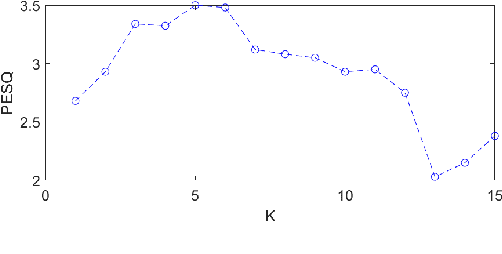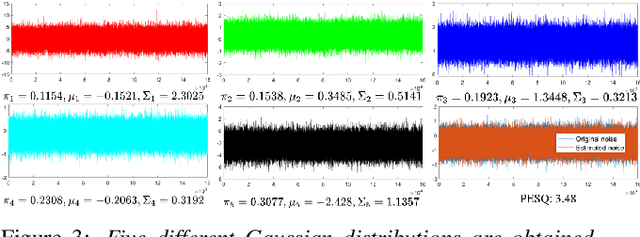Diffusion Gaussian Mixture Audio Denoise
Paper and Code
Jun 13, 2024



Recent diffusion models have achieved promising performances in audio-denoising tasks. The unique property of the reverse process could recover clean signals. However, the distribution of real-world noises does not comply with a single Gaussian distribution and is even unknown. The sampling of Gaussian noise conditions limits its application scenarios. To overcome these challenges, we propose a DiffGMM model, a denoising model based on the diffusion and Gaussian mixture models. We employ the reverse process to estimate parameters for the Gaussian mixture model. Given a noisy audio signal, we first apply a 1D-U-Net to extract features and train linear layers to estimate parameters for the Gaussian mixture model, and we approximate the real noise distributions. The noisy signal is continuously subtracted from the estimated noise to output clean audio signals. Extensive experimental results demonstrate that the proposed DiffGMM model achieves state-of-the-art performance.
 Add to Chrome
Add to Chrome Add to Firefox
Add to Firefox Add to Edge
Add to Edge